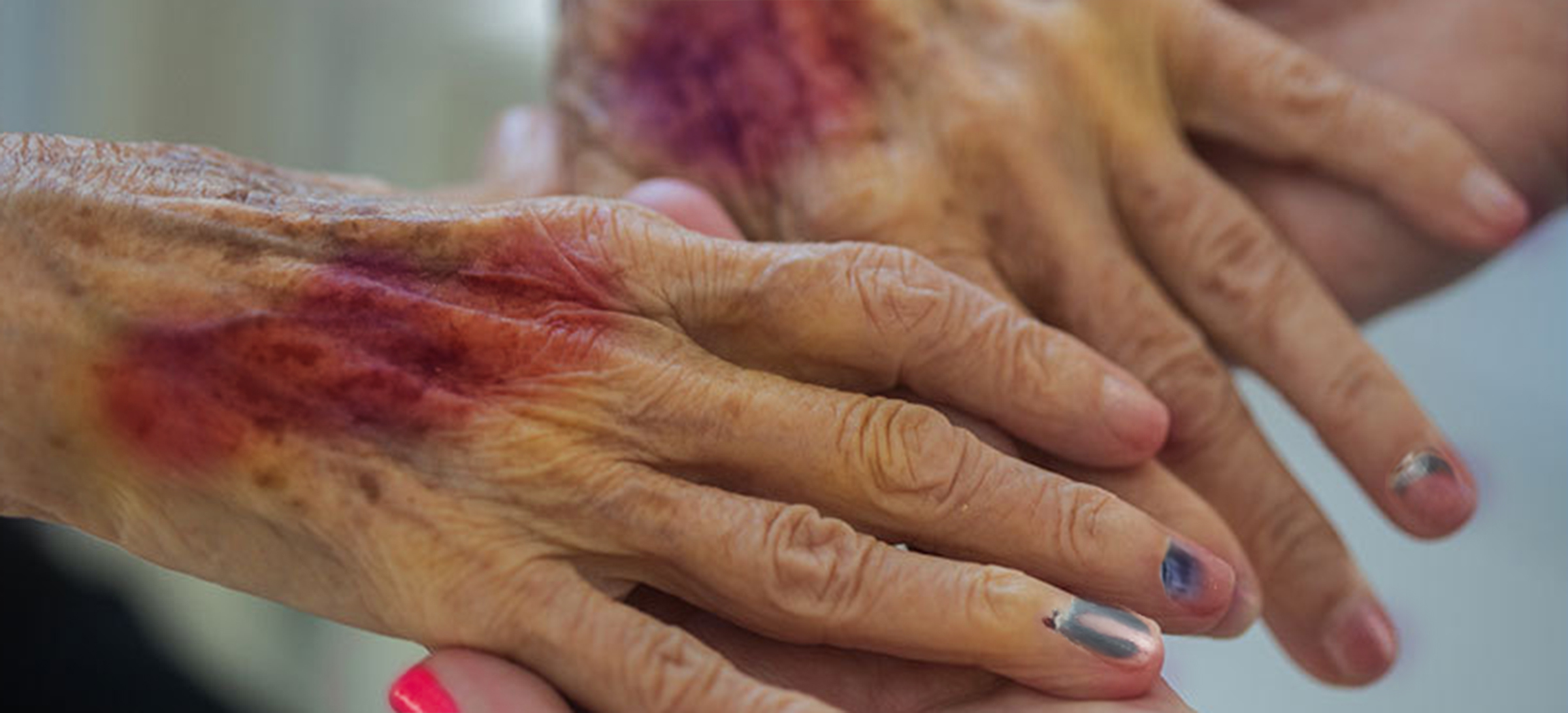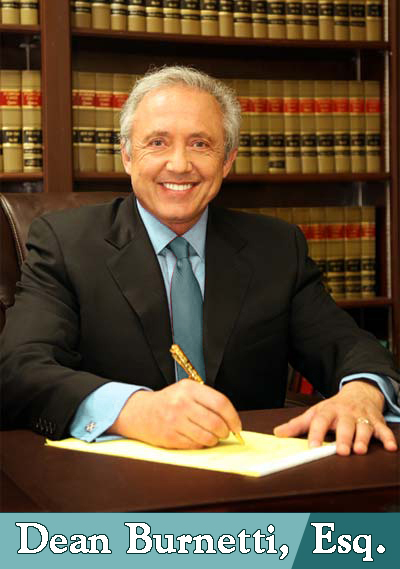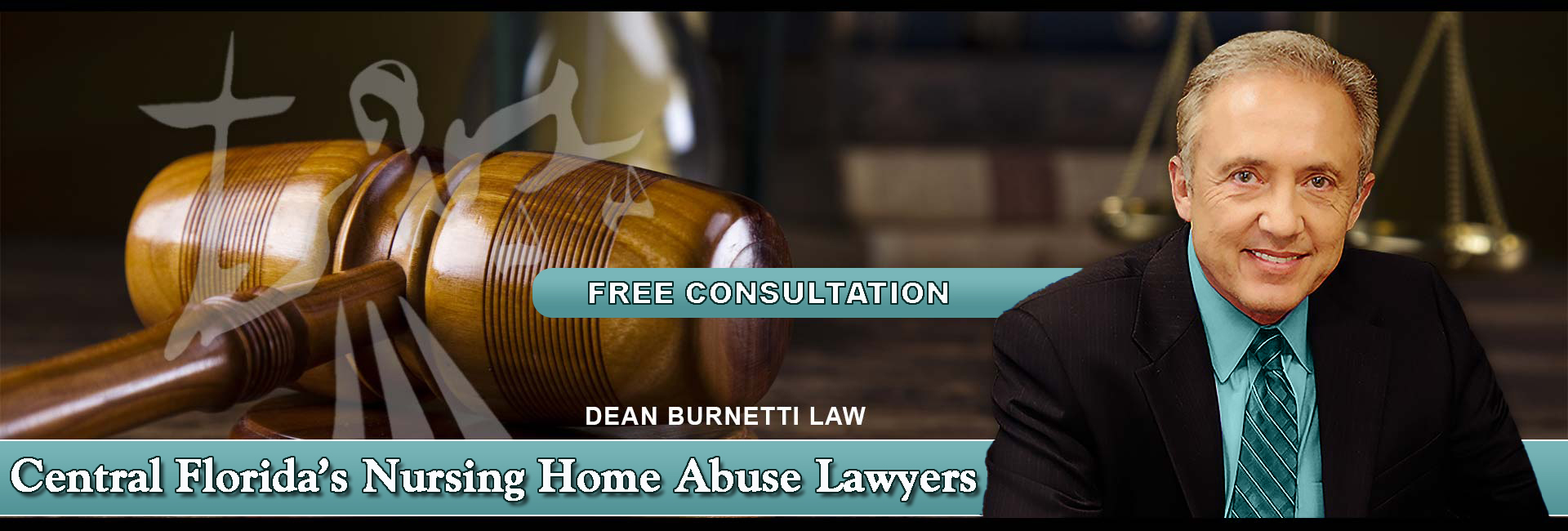Frequently Asked Nursing Home Abuse Questions
The Central Florida Nursing Home Abuse Lawyers at Dean Burnetti Law provide professional Nursing Home Abuse, Nursing Home Negligence, and Nursing Home Injury Attorney Legal Services in Polk County, including: Lakeland, Auburndale, Bartow, Haines City, Lake Wales, Mulberry, Polk City, and Winter Haven; in Hillsborough County, including: Brandon, Tampa, Riverview, Valrico, and Plant City; in Pinellas County, including: Clearwater, St. Pete, Gulfport, Treasure Island, Largo, Oldsmar, Treasure Island; as well as in all of the surrounding Greater Central Florida Areas.

Q: DO NURSING HOME RESIDENTS HAVE SPECIFIC RIGHTS?
A: Yes. According to the Florida Long-Term Care Ombudsman Program, Florida nursing home residents have rights, including the right to:
- Be treated courteously, fairly, and with dignity
- Remain free of mental and physical abuse, corporal punishment, extended involuntary seclusion, and from physical and chemical restraints except those ordered by resident's physician
- Private and uncensored communication
- Services necessary to maintain their physical and mental well-being
- Be free of financial exploitation
- Present grievances without fear of repercussions
Nursing homes that accept Medicaid or Medicare must comply with the federal Nursing Home Reform Law of 1987. In short, this law states that the person or entity who abused or neglected your loved one owed them a “duty of care”. A duty of care means that the caregiver had an obligation to act as a reasonable person would in a similar situation. When looking at a nursing home or assisted living facility, a “reasonable person” employed there would uphold the residents’ rights as dictated by the state and federal law.
Q: IN A NURSING HOME ABUSE CASE, WHAT KIND OF THINGS CAN THE VICTIM BE COMPENSATED FOR?
A: Breaching the “duty of care” is when nursing home residents’ rights are violated and, as a result, they suffer physical, mental, emotional, sexual, or financial damages. When these rights are breached, the victims are entitled to receive various forms of compensation, including “Economic Damages,” “Non-Economic Damages,” and occasionally, “Punitive Damages.”
Economic Damages include reimbursement for the following costs associated with the injuries resulting from the abuse/neglect incident:
- Ambulance bills
- Hospital bills
- Transportation costs associated with follow-up medical care
- Physical therapy service bills
- Doctors’ office visit bills (or out-of-pocket co-pays)
- Durable medical equipment costs
- Home healthcare service bills
- Prescription medication costs
Non-Economic Damages do not* have a defined dollar amount assigned to them, but they include reimbursement for the following:
- Physical pain caused by the abuse/neglect incident
- Emotional suffering experienced as a result of the abuse/neglect incident
- Disfigurement resulting from the abuse/neglect incident
- Physical impairment resulting from the abuse/neglect incident
- Inconvenience experienced as a result of the abuse/neglect incident
- Loss of capacity for enjoyment of life experienced as a result of the abuse/neglect incident
*The exception to Non-Economic Damages having no cap is when the case is of negligence against a medical practitioner. Nursing home abuse cases with a named physician as the Defendant cannot exceed $500,000 per claimant (injured party), regardless of number of practitioner Defendants. Furthermore, if the doctor’s negligence or abuse resulted in a permanent vegetative state or death to the nursing home resident, the cap cannot exceed $1 million.
Punitive Damages:
Punitive or Financial Damages are occasionally awarded in situations where the abuse or neglect was especially egregious and purposeful. To clarify, this recourse is meant to be a financial punishment to the offender and a means to deter others from engaging in the same type of abuse or neglect. While Florida does not cap Economic or Non-Economic Damages in nursing home abuse cases, Punitive Damages are limited. Florida Statute §768.73 limits Punitive Damages to between $500,000 or three times the amount of compensatory (or the economic plus non-economic) damages awarded, a maximum of whichever amount is larger.
Q: HOW MUCH ONEY WILL I GET FOR MY MEDICAL MALPRACTICE OR MEDICAL NEGLIGENCE SETTLEMENT?
A: Each of the “damages” listed above help establish the monetary value of your case. The insurance companies involved (plus the jury if your case goes to trial) will also compare settlements typically awarded for injuries similar to yours.
Q: IF I SIGNED A FORM PRIOR TO MY LOVED ONE'S ADMISSION TO A NURSING HOME STATING THAT I WILL NOT SUE THEM, CAN I STILL MAKE A CLAIM AGAINST THEM IF THEY ABUSED MY FAMILY MEMBER?
A: Yes. Even if you signed such a form, no document is a free pass for the nursing home to fail to provide an acceptable standard of care. When a nursing home deviates from the acceptable standard of care and such deviation harms a resident, that resident or their next-of-kin may be entitled to compensation for their damages.
Q: HOW LONG DO I HAVE TO FILE A NURSING HOME ABUSE LAWSUIT IN FLORIDA?
A: A wrongfully injured nursing home resident has two years to bring a legal action against a nursing facility in the State of Florida. However, because Florida law requires certain documents to be filed or exchanged prior to filing a nursing home lawsuit, it’s best to enlist an attorney as soon as possible. Consequently, this allows the lawyer enough time to gather records and locate expert witnesses.
Q: ARE NURSING HOME ADMINISTRATORS THE ONLY PEOPLE LIABLE FOR NURSING HOME ABUSE OR NEGLIGENCE?
A: No. In fact, any nursing facility employee can be liable of abuse or negligence. Moreover, the actual facility can be a lawsuit defendant. Also, outside offenders' employers (such as vendors) may be held liable. Some examples include:
- Staff Doctors
- Nurses
- Nurses' Aides
- Physical Therapists
- Occupational Therapists
- Direct Care Employees
- Dieticians
- Administrative Employees
- Support Staff
- Pain Management Administrators
- Clergy Staff
- Maintenance Employees
- Recreational Employees
- Housekeepers
- Vendors
- Volunteers
- Visiting Entertainers
- Other Nursing Home Patients or Residents
- Nursing Homes
- Retirement Homes
- Assisted Living Facilities
- Convalescent Homes
- Elder Residential Facilities
- Senior Living Facilities
- Old Soldier’s Homes
- Old Age Homes
- Rest Homes
- Veterans' Residential Centers
- Nursing Home Vendors' Employers
- Nursing Home Visitors
Q: IF I MAKE A NURSING HOME ABUSE OR NEGLIGENCE CLAIM, WILL I HAVE TO GO TO COURT?
A: Not necessarily. The majority of all injury cases settle prior to going to trial. Once your case makes it to the litigation phase, you’ll probably have to give a deposition. This typically takes place at a court reporter’s office or some other neutral location and requires you to give an oral account of the facts of your case. You’ll also likely have to attend a mediation. This usually takes place at a mediator’s office or other neutral location. At a mediation, both attorneys and the mediator will give opening remarks, then you and your attorney will go to another room by yourselves while the mediator goes between you and the doctor. However, if there are hearings in your case, you will probably not have to attend these. If you case makes it all the way to the trial phase without settling, then you would have to appear in Court.
Q: WHAT KIND OF INJURIES QUALIFY AS NURSING HOME ABUSE OR NEGLIGENCE CLAIMS?
A: Nursing Home abuse or negligence injuries often include: Dehydration, Malnourishment, Starvation, Bed Sores or Pressure Sores, Intentional Bruising, Restraint Wounds, Falls, Sexual Assault, Broken or Fractured Bones, Untreated Injuries, Bedrail injuries, Concussions, Infection, Wounds from Soiled Undergarments, Wounds from Parasites, Medication Overdose, Improper Medication, Welts, Injuries from Physical Force, and Death.
Q: IF MY LOVED ONE HAD A BAD EXPERIENCE WITH A NURSING HOME THAT DOESN’T QUALIFY AS NURSING HOME ABUSE OR NEGLIGENCE CASE, WHAT CAN I DO?
You can write a letter, detailing your complaint, to the Administrator of the nursing home.
Also, you can send a copy of that letter to the nursing home's parent company.
Furthermore, you can send another copy of that same letter to the Florida Department of Health Services.
Plus, you can send another copy of that same letter to Florida's Agency for Health Care Administration, the governing body for Florida nursing homes.
You could contact the Florida Board of Nursing Home Administrators.
Additionally, if your complaint involves a licensed medical professional, you could file a complaint with the Florida State Medical Board.
If someone at the nursing home was sexually inappropriate or abusive, you should immediately file a police report.
If a nursing home employee demonstrated discrimination to your race, gender, sexual orientation, age, or religion, you should contact the Office for Civil Rights at the U.S. Department of Health and Human Services.
And if your nursing home fraudulently billed you, you should report the matter to your health insurer, Medicare, Medicaid, and the Florida State Attorney General’s office.
If you were injured or if a loved one was injured or killed as a result of Nursing Home Abuse or Negligence, you have the right to a qualified attorney who is skilled in Florida's complex nursing home law and is knowledgeable about your type of injuries. Call (863) 287-6388 in Polk County or (813) 287-6388 in Hillsborough County or Pinellas County today to schedule a free confidential consultation with an experienced Nursing Home Abuse lawyer at Dean Burnetti Law.

Our Statement of Faith
We declare that Jesus Christ is the Lord of all. That the Holy Spirit abides in the midst of all within our halls. That the power of prayer is our shield and sword.
We declare that Christ is the cornerstone of this firm.
LAKELAND OFFICE
1937 East Edgewood Drive, Suite 102,
Lakeland, Florida 33803
Lakeland: (863) 287-6388
BRANDON OFFICE
413 Lithia Pinecrest Road,
Brandon, FL 33511
Brandon: (813) 287-6388
CLEARWATER OFFICE
2727 Ulmerton Road, Suite 250,
Clearwater, FL 33762
Clearwater: (813) 287-6388


